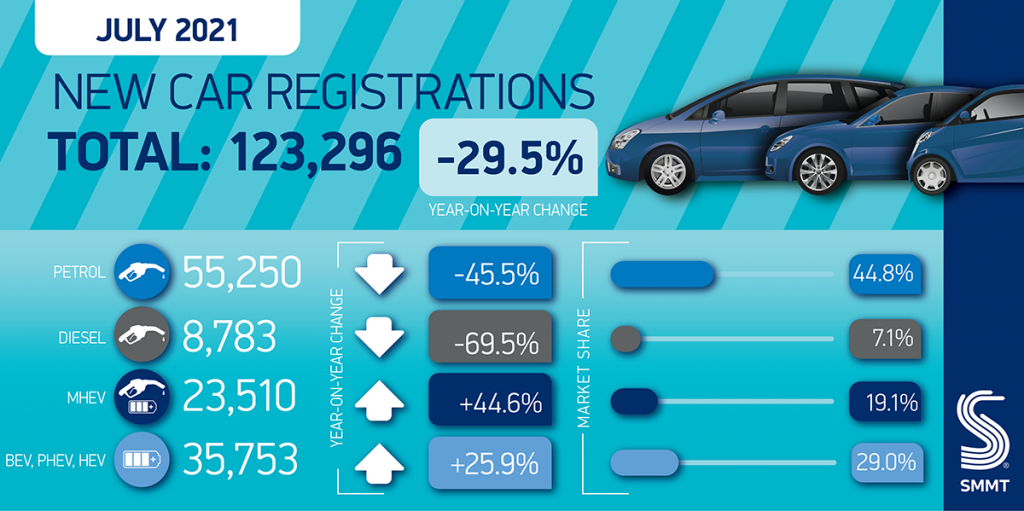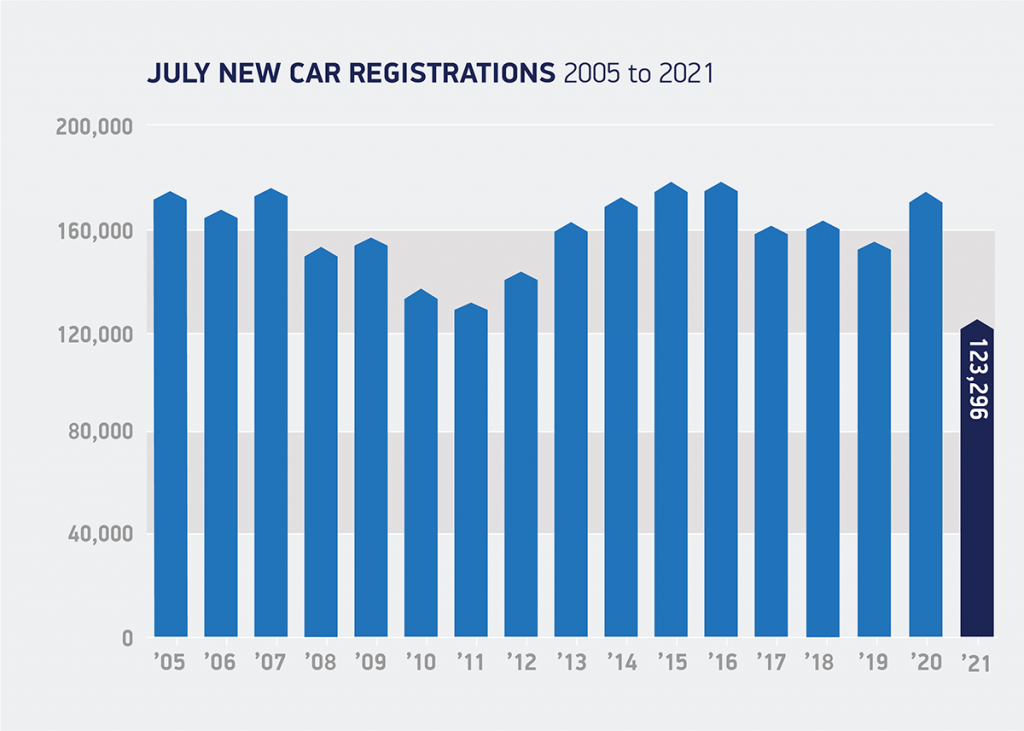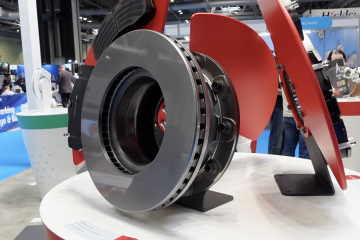New car registrations fell by 29.5% in July, with 123,296 units sold in the month according to the Society of Motor Manufacturers and Traders (SMMT).
The decline is heightened by the bumper performance of July 2020, when dealerships enjoyed their first full month of trading following the first COVID-19 lockdown. However, registrations are down 22.3% on the 10-year average, marking the weakest July since 1998, prior to the introduction of the two-plate system.
While the ‘pingdemic’ has impacted the automotive market, as carmakers have slowed production and dealerships have suffered with staff shortages, the issue of semiconductors is also playing a part. Markets across Europe are continuing to suffer as this critical component continues to be hard to source. With the increase in technology sales due to the pandemic, the automotive industry is competing for semiconductors, and their lack of supply means carmakers are unable to meet demand for new models.

The decline was predominantly within large fleets which, at 61,140 units, was 28.7% lower than the average recorded over the past decade. Private registrations declined by a lesser extent, down 10.7%, to 59,841 units.
“The automotive sector continues to battle against shortages of semiconductors and staff, which is throttling our ability to translate a strengthening economic outlook into a full recovery,” commented Mike Hawes, SMMT Chief Executive. “The next few weeks will see changes to self-isolation policies which will hopefully help those companies across the industry dealing with staff absences, but the semiconductor shortage is likely to remain an issue until at least the rest of the year.”
Battery growth
For the first time, battery-electric vehicles (BEVs) outsold standard diesel models, taking a 9% market share compared to 7.1% for the out-of-favour technology. Plug-in hybrids (PHEVs) also performed well with an 8% share, while standard hybrids accounted for 11.9% of the market. Petrol was still the market leader with 44.8% of sales.
Diesel sales are now in freefall. While mild-hybrid versions keep the technology help to keep it above BEV units overall, the 7.1% share for standard models is significantly down from the 16.5% this time last year. So far in 2021, diesel commands just a 9.9% market share. Five years ago, it was the market leader.
All new car segments experienced declines, but Britain’s most popular types of cars remained superminis (32.9% of registrations), lower medium (28%) and dual purpose (27.3%).
The UK’s economic outlook is continuing to strengthen, with most consumer indicators suggesting a greater appetite for spending, including ‘big-ticket’ items. Yet as supply issues continue to pose challenges while this want is increasing, the SMMT believes that August, traditionally a quieter month for registrations, will also fair poorly. However, with dealerships fully open for the plate change in September, it believes a modest growth will occur in Q4.

As a result, the latest SMMT outlook has been revised downward and now forecasts registrations to reach around 1.82 million units in 2021. This is still some 11.7% up on 2020, but down from the 1.86 million forecast in April, and down around 21.8% on the average new car market recorded over the past decade. More positively, however, given the continued strengthening of the electric vehicle market, SMMT now estimates that BEVs will account for 9.5% of registrations by year end, while PHEVs are forecast to comprise 6.5% of the market, collectively totalling around 290,000 units by the end of the year.
“As a result of supply shortages, we have downgraded the market outlook slightly for 2021,” continued Hawes. “The bright spot, however, remains the increasing demand for electrified vehicles as consumers respond in ever greater numbers to these new technologies, driven by increased product choice, fiscal and financial incentives and an enjoyable driving experience.”




You must be logged in to post a comment.